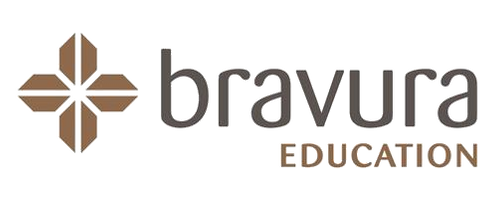
How will the new AHPRA Guidelines affect laser practice?
The Australian Health Practitioner Regulation Agency (AHPRA) has released advance guidelines for registered health practitioners performing non-surgical cosmetic procedures, including those involving lasers and energy-based devices. These guidelines aim to enhance public safety and standardise practices across the industry and will be implemented on 2 September 2025.
These guidelines are part of AHPRA's broader efforts to improve safety and accountability in the cosmetic procedures industry. Practitioners are encouraged to familiarise themselves with the full guidelines to ensure compliance and uphold the highest standards of patient care.
What do I need to know as a doctor, nurse or dentist?
The guidelines classify non-surgical cosmetic procedures as those intended to alter appearance without cutting beneath the skin. This includes treatments such as CO₂ laser skin resurfacing and laser hair removal. However, concerns have been raised about the limited inclusion of other laser procedures, such as those for pigment and vascular lesions, which also carry risks.
Practitioners must ensure they possess the necessary education, training, and competence to perform these procedures safely. This includes understanding the specific risks associated with laser and energy-based treatments.
Laser education for skin rejuvenation
If you are using lasers for skin rejuvenation, the education for you to meet these requirements is the Laser Safety Online Course (Cosmetic) This one covers IPL too. These two courses are what the nurses do as part of their Graduate Certificate in Cosmetic Nursing through the Australian College of Nursing and the medical registrars on the program with the Australasian College of Cosmetic Medicine and Surgery, so if you do it with us first, you may be eligible for some recognition of prior learning for those courses. These courses are also recognised by radiation health departments.
Laser hair removal education
Bravura has a course that covers all of this for you. This is the Laser Safety and Laser/IPL Hair Removal Course. It is a laser safety course and everything you need to know on how to perform laser hair removal safely and effectively.
Laser tattoo removal course
We have tattoo removal covered too with the Laser Safety and Tattoo Removal Laser Course which again, has a laser safety certificate and everything you need to know on how to perform laser tattoo removal safely and effectively.
Laser clinic requirements
The new guidelines state that procedures involving lasers should be conducted in facilities appropriate for the level of risk, with adequate staffing and equipment to manage potential complications. All of our laser safety courses show you how to mitigate risk in your workplace including free policies and editable door signs. Also, strict infection prevention and control measures must be in place, tailored to the risks associated with each procedure. Infection control is integrated into all of our curricula.
Advertising laser services
Advertising of non-surgical cosmetic procedures must not glamorise treatments, minimise risks, or imply unrealistic outcomes. Practitioners must comply with national advertising standards and guidelines.
Laser treatments for under 18s
Practitioners must be aware of and comply with legislation regarding the provision of cosmetic procedures to individuals under 18 years of age. This is not new for laser practice.
What if I'm not a registered health professional, do these still apply to me?
While AHPRA's guidelines do not directly govern unregistered practitioners, these individuals are regulated under state and territory laws. For instance, in New South Wales, the Health Care Complaints Commission (HCCC) oversees unregistered health service providers. The HCCC enforces the Code of Conduct for Unregistered Health Practitioners, which sets minimum standards for practice and ethical conduct. Breaches can result in prohibition orders, preventing individuals from providing health services.
The Health Practitioner Regulation National Law (National Law), adopted across Australian states and territories, primarily governs registered health practitioners. However, recent amendments have expanded its scope. Notably, the 2025 amendments grant AHPRA and National Boards the authority to issue interim prohibition orders against unregistered individuals posing a serious risk to public safety.
In addition, the National Code of Conduct for Health Care Workers, implemented in several jurisdictions, establishes enforceable standards for unregistered practitioners. This code addresses issues such as informed consent, appropriate qualifications, and the prohibition of misleading advertising.
The operation of lasers and other energy-based devices for cosmetic purposes is subject to specific regulations, which vary by state and territory. For example, in Queensland, the use of certain laser devices is regulated ,requiring operators to hold appropriate licences and adhere to safety standards. Unregistered individuals using such devices without proper authorisation may face legal penalties.
Regardless of registration status, all individuals advertising non-surgical cosmetic procedures must comply with Australian Consumer Law, which prohibits misleading or deceptive conduct. This includes accurately representing qualifications, the nature of procedures, and potential risks. Misrepresentation can lead to enforcement actions by regulatory bodies such as the Australian Competition and Consumer Commission (ACCC).
What happens if I don't have the right education and something goes wrong?
You're in luck. This is the blog I wrote last week! Find it HERE.
I need more information!
Contact us HERE.
Post Disclaimer
This blog post has been vigilantly researched and fact checked to ensure that it is accurate, reliable and up to date. You must keep in mind that errors and omissions may occur and that we welcome any feedback or corrections in this regard. We encourage you to do your own research to verify the accuracy and contemporary nature of the information presented.
